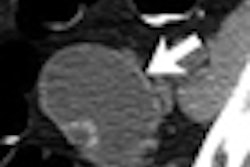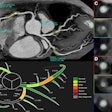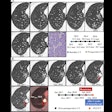Dear AuntMinnie Member,
Radiology is changing at a dizzying pace. From drastic reimbursement cuts to the rise of national radiology groups, powerful forces are reshaping medical imaging, prompting radiology professionals to re-examine how they operate.
Fortunately, imaging informatics technologies such as PACS are giving imaging specialists the tools they need to adapt and even thrive in this new environment. That's why AuntMinnie.com is pleased to host PACS in an Age of Change, a new virtual conference to take place on November 17.
If you've ever attended a virtual conference, you'll find that it's a great environment for in-depth learning without the hassles of travel. We've assembled a roster of six prominent experts in imaging informatics, and you'll be able not only to listen to presentations but also to ask questions and interact with your peers in real-time.
To view our speaker list, see the great prizes you can win for participating, and get more information, just visit pacschange.auntminnie.com. And mark your calendar for November 17!
Colonoscopy complications
In other news, a provocative new study presented at this week's American College of Gastroenterology meeting in San Antonio could have positive repercussions for proponents of virtual colonoscopy.
Researchers from Emory University in Atlanta found that conventional optical colonoscopy produced significantly higher rates of complications -- such as cardiac events and bowel perforations -- in a large population of Medicare patients versus a matched group that didn't undergo the procedure.
The results in more than 350,000 patients could help inform the debate over which tools are used for colorectal cancer screening. Although screening virtual colonoscopy was denied Medicare reimbursement last year, the technology's proponents continue to maintain that its noninvasive nature makes it better suited for older individuals like those in the Emory study.
Learn more by clicking here, or visit our Virtual Colonoscopy Digital Community at vc.auntminnie.com.




















